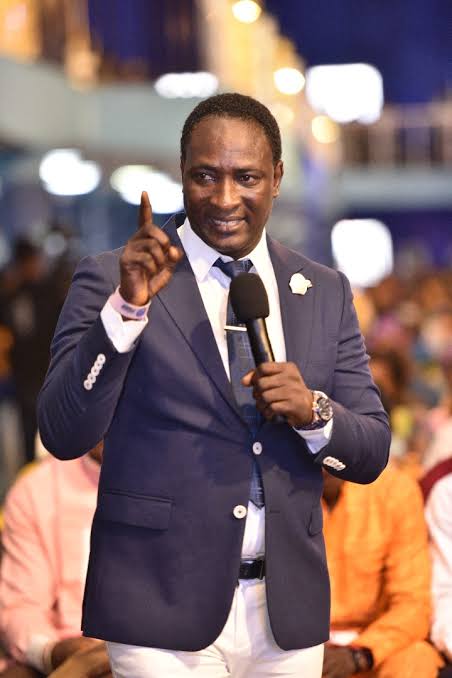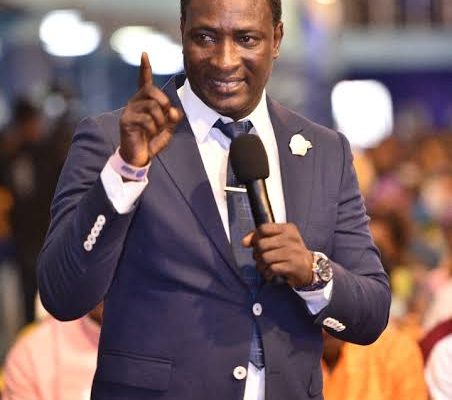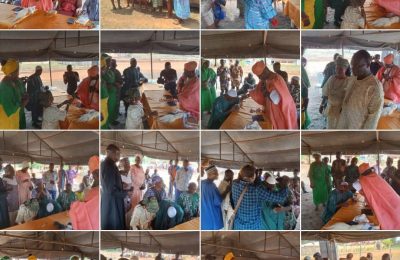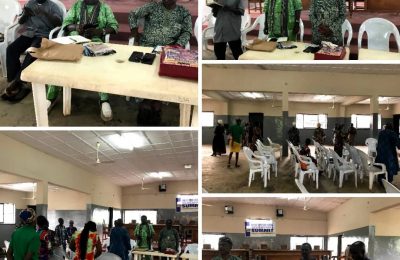

A recent statement by Fr. Kelvin Ugwu, a Nigerian Catholic priest on a mission in Gambia, has sparked widespread outrage and condemnation from the Christian community and beyond. Fr. Ugwu alleged that “more than 90% of everything Prophet Jeremiah Omoto Fufeyin does, including selling water, oil, etc., are juju practices.”
Prophet Jeremiah Omoto Fufeyin, the founder and senior prophet of Christ Mercyland Deliverance Ministry, is widely recognized for his philanthropic efforts and spiritual leadership. Many have dismissed Fr. Ugwu’s allegations as baseless and misleading, viewing them as an attempt to discredit Prophet Fufeyin and other church leaders. “This is a clear case of defamation and an attempt to tarnish the image of a respected man of God,” said Christopher Aliba, a leader at Christ Mercyland Deliverance Ministry in Warri.

Fr. Ugwu further claimed that “lots of juju practices and beliefs are transported from juju shrines straight to the churches.” This statement has been criticized as a hasty generalization that unfairly maligns churches and infringes on the rights of worship and association. “Such a statement is not only divisive but also a clear example of prejudice and intolerance,” said Pastor David, a spokesperson for the Interfaith Coalition. “We urge Fr. Ugwu to retract his statement and apologize for any harm caused.”
The use of spiritual mantles or points of contact is a well-established biblical practice. For instance, in 2 Kings 2:13-14, Elijah’s mantle was passed to Elisha, symbolizing the transfer of prophetic authority. Similarly, in Acts 5:15, people believed that Peter’s shadow had healing properties, demonstrating his spiritual power.
In contemporary Christianity, many faith leaders, including Prophet Jeremiah Omoto Fufeyin, employ mantles or points of contact such as anointing oil, water, or prayer cloths as tools for spiritual connection, healing, and impartation. These practices are not exclusive to Pentecostal churches; the Catholic Church, where Fr. Ugwu serves, also utilizes various sacramentals for religious purposes.
It is worth asking Fr. Kelvin Ugwu whether the following items are freely given or sold in his parish and other Catholic institutions:
1. Holy Water – Used for purification and protection.
2. Candles – Used for prayer, devotion, and symbolizing the light of Christ.
3. Incense – Burned during Mass to symbolize prayers rising to heaven.
4. Sacramentals (Rosaries, Scapulars, Medals) – Objects blessed by priests as reminders of God’s presence.
5. Blessed Salt – Used for protection and purification.
6. Anointing Oil – Used in the Sacrament of the Sick and other blessings.
7. Relics – Items associated with saints, often sold as devotional objects.
8. Holy Cards – Small cards with prayers, images, or relics, sometimes available for purchase.
9. Blessed Icons – Images of saints or biblical scenes blessed for veneration.
10. Communion Gifts – Items sold to commemorate First Communion or other sacramental occasions.
When questioned about the sale of these items, the Catholic Church often clarifies that proceeds support its ministries and charitable works. Similarly, Pentecostal churches that distribute anointing oil, prayer cloths, or other items emphasize their role in spiritual practices rather than profit-making.
The Nigerian Constitution guarantees the right to freedom of thought, conscience, and religion, including the freedom to change one’s belief. Many argue that Fr. Ugwu’s statement undermines this fundamental right. “These allegations are not only unfounded but also incendiary; they have the potential to incite violence and discrimination against people of other faiths. We urge him to be more mindful of his words,” said Emeka Esq.
As the controversy unfolds, it is clear that Fr. Ugwu’s allegations have caused significant distress. “It is imperative that he takes responsibility for his words and promotes greater understanding and respect among people of different faiths,” Aliba added. The notion that all church leaders visit juju shrines is a stereotype and an unfair generalization. While some individuals may engage in questionable practices, it is unjust to assume that all do.
Christianity, like any other religion, is diverse, with varying expressions and practices. Rather than making sweeping generalizations, concerns about specific leaders should be addressed through constructive dialogue, accountability, and discernment. Many sincere men and women of God lead churches with integrity, commitment, and authenticity, and their efforts should not be discredited based on unfounded accusations.







